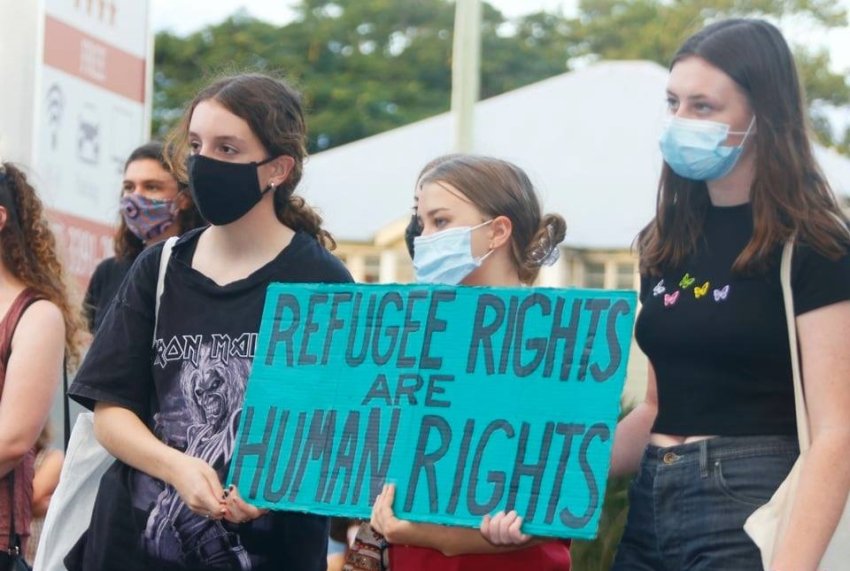
Take some of the world’s most persecuted individuals, add a hostile immigration detention policy (condemned by the United Nations as a breach of human rights) and throw in a global pandemic of unprecedented scale and it’s little wonder that refugees and asylum seekers are feeling very vulnerable.
COVID-19 has affected refugees in detention and in the community in devastating ways. What will the new “normal” look like for those still incarcerated or waiting for a determination?
We already know a lot about the appalling conditions for refugees in immigration detention. Since they were set up, the inadequate and brutal conditions have led to people’s mental health deteriorating. The Australian Human Right Commission has described conditions in detention as unhygienic and cramped – making the threat of an outbreak of the virus even more serious.
Even the federal Department of Health noted the risk of refugees and asylum seekers in detention becoming “seriously infected” from COVID-19.
These dangers prompted refugee and asylum seeker rights groups to call on the federal government to release detainees into the community — either in community detention or on community bridging visas — where they could safely and humanely isolate with the rest of us.
The state and federal governments moved quickly to enact public health measures, but despite the obvious dangers faced by detained refugees, the federal government abrogated its responsibility for their welfare.
The government’s cruelty was on full display when, last August, the Federal Court found that the then Minister of Home Affairs Peter Dutton had a duty to protect the life of a man who, due to his old age and diabetes, had a high risk of death from COVID-19.
The authorities were forced to transfer him from the Melbourne Immigration Transit Accommodation centre to another detention centre, further away from his son and grandchildren.
As we know, refugees on temporary visas were not eligible for the JobKeeper payment, nor could they access Medicare payments. Given that the majority do not have financial resources, it became even harder for them to survive.
Even accessing help from charities became harder as they were either forced to pause at the height of the pandemic for economic reasons or social distancing regulations, or were simply run off their feet with the increased need.
Also, dedicated refugee organisations that provide many essential services were not able to function. These support systems, especially services assisting refugees with understanding their visa or residency applications, are a vital lifeline for those in limbo.
The implications for those filling out the information incorrectly or submitting a late application could mean deportation or indefinite detention.
What will the “end” of COVID-19 mean for these refugees?
For new arrivals in particular, there may not be much of a relief. They may well find the visa application process even more difficult, which is hard to believe given the prohibitively strict requirements already in place.
But, as the pandemic did not hit pause on the war in Syria, or civil unrest in the Democratic Republic of the Congo, people are still seeking asylum.
The pandemic did however stop nations carrying out their international obligations to resettle asylum seekers.
The number of people seeking asylum has grown while the borders have been closed. This means that when they do reopen there are likely to be far more people seeking asylum.
Given the federal government’s track record, this is not good news for anyone seeking to stay in this country.
It’s looking likely that Australia will implement a system in which “vaccine passports” are a prerequisite to entry.
Refugees coming from the global South will be less likely to have received the vaccine compared to other international arrivals.
Even among those who are vaccinated, many may have left their homes at short notice, or under dangerous circumstances, and therefore not have all their documents.
In practice, vaccine passports may end up being an additional barrier to refugees trying to reach safety and become another justification for them being kept in limbo.
The pandemic has impacted the globe unequally: the poor, the displaced, and ethnic and racial minorities have borne the brunt of the suffering.
It is a reminder that, in times of crisis, we cannot rely on governments to take care of everyone equally as long as the unjust power structures are in place.
[Joanna Psaros has a Master of Law and International Development and is a volunteer worker with refugees.]